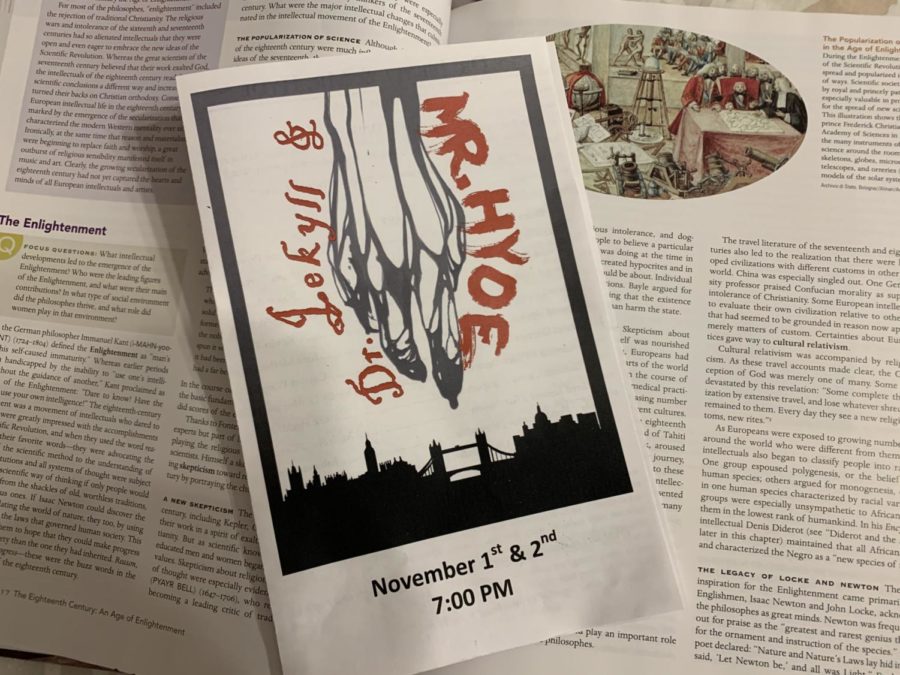‘Dr. Jekyll & Mr. Hyde’ uncovers the true nature of man
The annual fall play premiered on the night of Nov. 7.
This year’s annual fall play, “Dr. Jekyll & Mr. Hyde,” was held on Nov. 1 and 2 at 7 p.m. It depicted a tale of the true nature of man, and the inherent purity and evil which manifest themselves in him.
Played by sophomore Nathan Frewen, Dr. Jekyll is a scientist who attempts to separate man’s evil self from his pure self. He does so to himself and produces his alternate persona, Mr. Hyde.
Played by senior Kevin Tate, Hyde is a bitter, murderous man of whose presence Dr. Jekyll is not aware. Senior Carson Wagner played Gabriel Utterson, Dr. Jekyll’s lawyer and best friend, and he described the phenomenon of the parallel characters.
“[Jekyll] wants to find a way of isolating the beast in man’s nature so he could supposedly cure it, but as time goes on, he becomes more and more evil. Instead of curing evil, he becomes it,” Wagner said.
Junior Alaina Vergara was in the play, acting in the role of Hyde’s love interest. She explained Dr. Jekyll’s rationale for separating his two halves.
“Henry Jekyll separates the evil part of himself from the good part in an attempt to make himself the best version of himself that he can be, but then his evil half starts to cause trouble for him, and throughout the plot of the play, he attempts to get rid of the other part of himself in order to save his reputation,” Vergara said.
The role of Hyde was played by four individuals, with each Hyde representing a different evil aspect of Dr. Jekyll. Vergara explained that these Hydes touched on a deeper message of the play.
“Evil exists in all of us, and there’s no way that we can get rid of it, and we shouldn’t try to. We should just try to coexist,” Vergara said.
An intriguing scene in the play was Dr. Jekyll chasing Hyde around the stage, and at every point he arrived to find that there was no one else there. This ultimately showed Dr. Jekyll’s realization of his true self.
“[T]hat whole experience, for him as a character, was the beginning of his unraveling. His attempts to preserve his character were what actually became his downfall. That’s how we began to see the evil in Jekyll as opposed to Hyde,” Vergara said. “At the end, it was almost like they flipped.”
The play argued that man can be neither truly pure nor truly evil. Instead, people must learn to balance those two aspects of themselves and accept both their abilities and their flaws.


